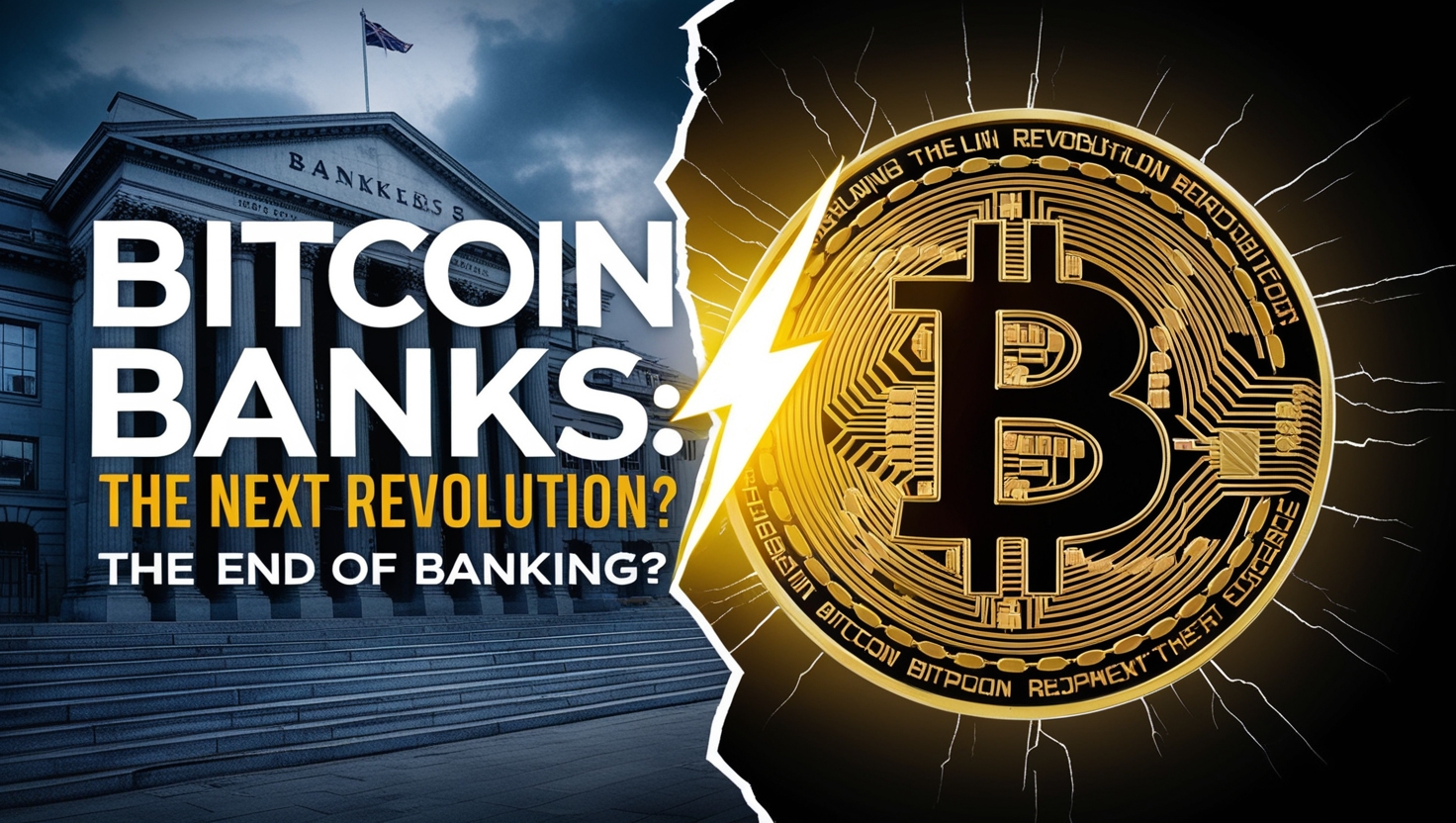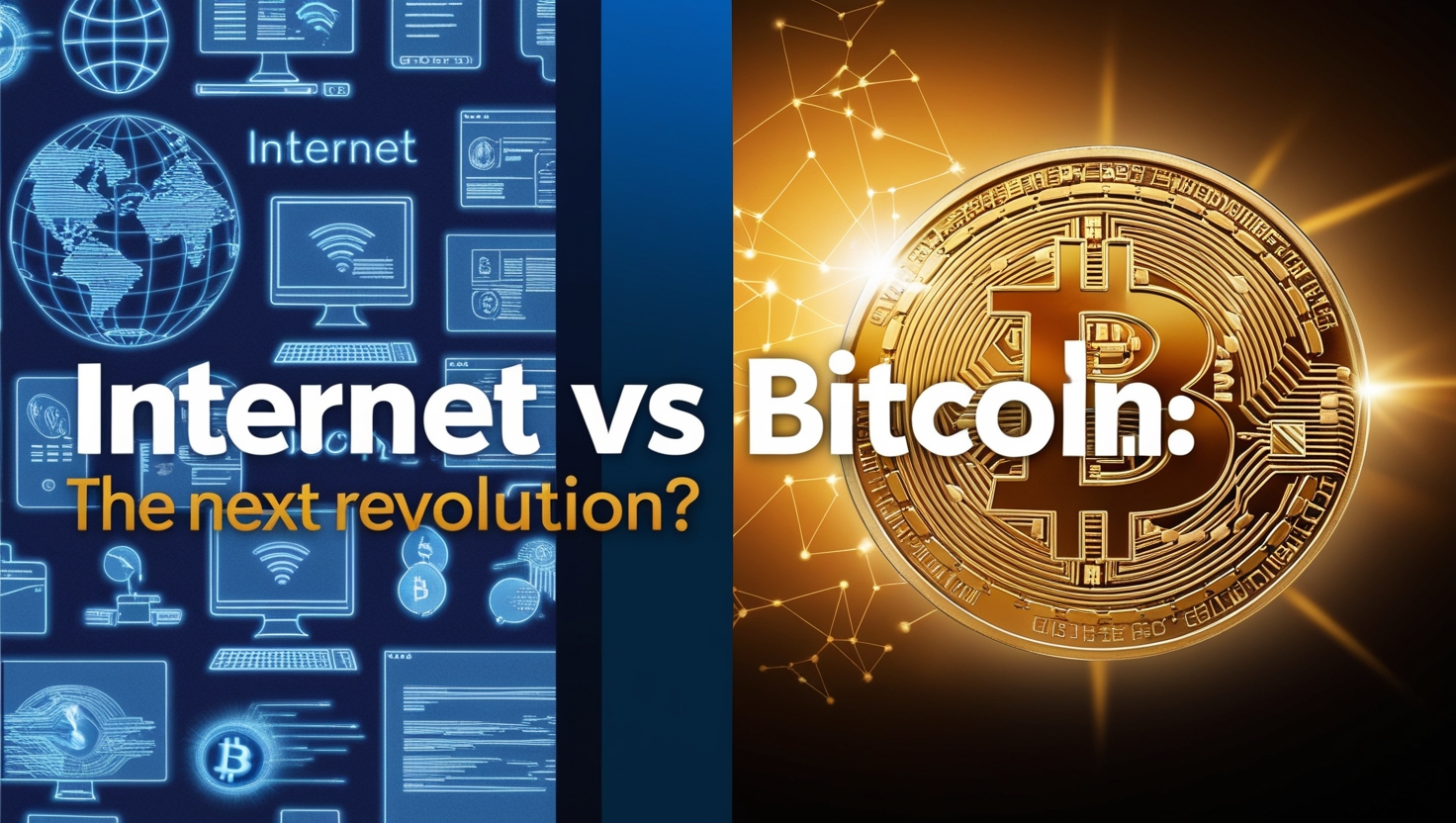Bitcoin Will Do to Banks What Email Did to the Postal Industry
The rise of Bitcoin has sparked discussions about its potential to disrupt traditional financial systems, much like how email revolutionized the postal industry. When email emerged, it provided a faster, cheaper, and more efficient means of communication, rendering traditional postal services less relevant for many applications. Similarly, Bitcoin and its underlying blockchain technology promise to redefine how money is transferred, stored, and managed, challenging the traditional banking industry. This article explores how Bitcoin could fundamentally alter the financial landscape, highlighting its potential to displace traditional banking systems and reshape global finance.
The Legacy of Traditional Banking
For centuries, banks have served as the cornerstone of the financial system. They provide services like savings accounts, loans, and money transfers, acting as intermediaries that facilitate the flow of money within the economy. Banks maintain a position of trust, safeguarding customers’ assets and ensuring smooth financial transactions. However, this reliance on centralized institutions has led to inefficiencies, high costs, and limitations, especially for those in underbanked or unbanked regions.
Bitcoin: A Decentralized Alternative
Bitcoin, introduced in 2009 by Satoshi Nakamoto, represents a paradigm shift in financial systems. Unlike traditional currencies controlled by central banks, Bitcoin operates on a decentralized network powered by blockchain technology. This distributed ledger system records transactions transparently and securely, eliminating the need for intermediaries. By bypassing banks, Bitcoin enables peer-to-peer transactions that are faster, cheaper, and more accessible.
Bitcoin’s Efficiency Compared to Banks
One of the most significant advantages of Bitcoin is its efficiency. Traditional banking systems often involve multiple intermediaries, leading to delays and high transaction fees. For example, international wire transfers can take several days and incur significant costs. In contrast, Bitcoin transactions can be completed within minutes, regardless of geographical location, and at a fraction of the cost. This efficiency makes Bitcoin particularly appealing for remittances, cross-border payments, and regions with limited banking infrastructure.
The Democratization of Finance
Bitcoin’s decentralized nature empowers individuals to take control of their finances without relying on banks. With a Bitcoin wallet, anyone with internet access can store, send, and receive money securely. This democratization of finance is particularly impactful in developing countries, where millions remain unbanked due to the lack of access to traditional banking services. Bitcoin provides a solution, enabling financial inclusion and reducing dependency on centralized institutions.
Security and Trust in the Bitcoin Network
Traditional banks operate on centralized systems, making them vulnerable to cyberattacks, fraud, and mismanagement. Bitcoin’s blockchain technology addresses these concerns by providing a secure and transparent network. Transactions are verified through a consensus mechanism, ensuring their accuracy and immutability. Additionally, the decentralized nature of the Bitcoin network makes it highly resistant to attacks, as there is no single point of failure. This security fosters trust among users, challenging the traditional role of banks as trusted intermediaries.
Bitcoin as a Store of Value
Bitcoin’s limited supply of 21 million coins makes it a deflationary asset, often referred to as “digital gold.” Unlike fiat currencies, which can be printed at will by central banks, Bitcoin’s scarcity protects it from inflationary pressures. This feature has made Bitcoin an attractive store of value, particularly in regions facing economic instability or hyperinflation. By providing an alternative to traditional currencies, Bitcoin challenges the monopoly of central banks over money creation and monetary policy.
The Rise of Decentralized Finance (DeFi)
Bitcoin has paved the way for the emergence of decentralized finance (DeFi), a movement that seeks to replicate traditional financial services using blockchain technology. DeFi platforms offer lending, borrowing, and investment opportunities without the need for banks or intermediaries. Smart contracts, self-executing agreements on the blockchain, enable trustless interactions, reducing the risk of fraud and increasing efficiency. This shift toward decentralized systems threatens to disrupt traditional banking models further.
Challenges to Traditional Banking Revenue Streams
Banks derive significant revenue from services like loans, credit cards, and transaction fees. Bitcoin’s ability to facilitate peer-to-peer transactions directly challenges these revenue streams. For instance, Bitcoin eliminates the need for payment processors, reducing costs for merchants and consumers alike. Similarly, Bitcoin-based lending platforms enable individuals to borrow and lend without involving banks, undermining their dominance in the lending market.
Regulatory and Institutional Adoption
As Bitcoin gains traction, traditional financial institutions are beginning to take notice. Some banks have started integrating cryptocurrency services into their offerings, recognizing the potential of blockchain technology. However, regulatory uncertainty remains a significant barrier to widespread adoption. Governments and central banks are grappling with how to classify and regulate Bitcoin, balancing the need to foster innovation with concerns about financial stability and illicit activities.
Environmental Concerns and Technological Advancements
Bitcoin’s energy-intensive mining process has drawn criticism, with concerns about its environmental impact. However, technological advancements are addressing these challenges. Initiatives like transitioning to renewable energy sources and developing more energy-efficient consensus mechanisms are underway. These efforts aim to make Bitcoin more sustainable, ensuring its long-term viability as a disruptive force in the financial industry.
Bitcoin and Financial Privacy
Privacy is another area where Bitcoin challenges traditional banks. While banks are subject to stringent Know Your Customer (KYC) and Anti-Money Laundering (AML) regulations, Bitcoin offers pseudonymity, allowing users to transact without revealing their identities. This feature appeals to individuals seeking greater financial privacy but has also raised concerns about its potential misuse for illegal activities. Striking a balance between privacy and compliance will be crucial for Bitcoin’s continued growth and adoption.
Global Implications of Bitcoin Adoption
The widespread adoption of Bitcoin has far-reaching implications for the global financial system. It could reduce the reliance on the US dollar as the global reserve currency, challenging its dominance in international trade. Additionally, Bitcoin could disrupt remittance markets, which are heavily reliant on traditional banking channels. By providing a faster and cheaper alternative, Bitcoin empowers individuals and businesses, fostering economic growth and reducing inequality.
The Future of Banking in a Bitcoin-Dominated World
If Bitcoin continues to gain traction, traditional banks will need to adapt or risk becoming obsolete. Some banks are already exploring blockchain technology to enhance their operations, while others are developing their own digital currencies to compete with Bitcoin. However, the decentralized and borderless nature of Bitcoin sets it apart, ensuring its continued relevance in a rapidly changing financial landscape.
Bitcoin’s Role in Financial Sovereignty
Bitcoin empowers individuals by giving them full control over their money. Unlike traditional banking systems, where funds can be frozen or confiscated, Bitcoin provides a censorship-resistant alternative. This financial sovereignty is particularly valuable in regions with authoritarian regimes or unstable economies, where individuals often face restrictions on accessing their own money.
Conclusion: The New Era of Finance
Bitcoin is poised to do to banks what email did to the postal industry. By offering a faster, cheaper, and more efficient alternative, Bitcoin challenges the traditional financial system, paving the way for a decentralized future. While it faces challenges like regulatory scrutiny and environmental concerns, its potential to democratize finance and empower individuals cannot be ignored. As Bitcoin continues to evolve, it will undoubtedly reshape the global financial landscape, marking the beginning of a new era in money and banking.











Leave a Reply